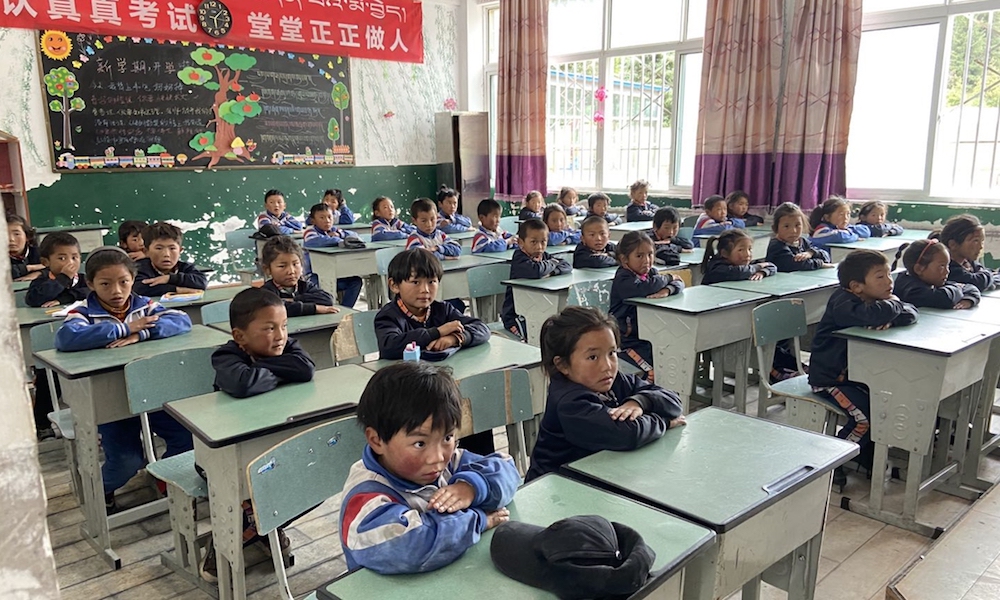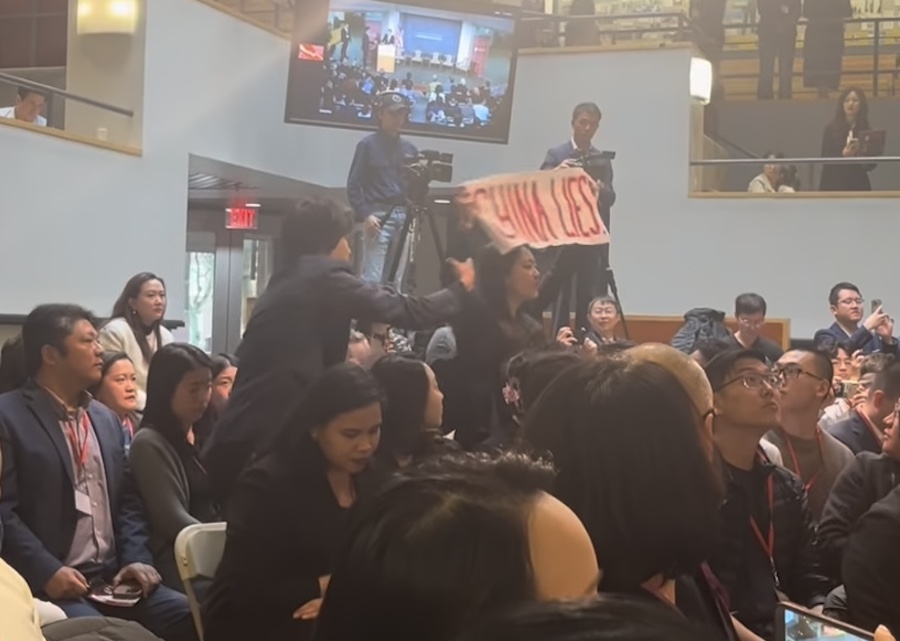By Choekyi Lhamo
DHARAMSHALA, Sept 20: A Chinese Ministry of Education’s official order that came into force this month imposes Mandarin language on all preschool children, according to rights group Tibetan Centre for Human Rights and Democracy (TCHRD). The report cited the decree by MoE that requires all kindergartens across ethnic and rural areas to use Mandarin as the medium of instruction for school activities.
“Starting from the fall semester of 2021, all kindergartens in ethnic areas and rural areas that have not used the national standard language for childcare and education activities will use the national standard language for activities to create a good Mandarin education environment for children,” read the decree sent out in July. The ‘Children Homophony Plan for Putonghua Education for Preschool Children’ is aimed at cultivating a strong foundation of the standard Chinese language and also to help ‘build a community for the Chinese nation from an early age.’
TCHRD researcher Tenzin Sangmo spoke to Phayul about the significance of this change in policy, “The plan is designed to weaken the child’s grasp of one’s mother tongue in the first few years. Although studies have shown that children are capable of picking up more than one language in early years and much rest in the hands of parents, we must remember that the imposition of compulsory Mandarin education in this context would serve as a conduit for sinicization lessons and cultural values that come with the introduction of a language.”
The report argued that this official transition is yet again an “extension of Xi Jinping’s belief in catching them young, noting the significance of language learning in the early years, and discounting the purpose of bilingual education of helping children ease into the school system.” The teachers are also expected to undergo ‘national common language application ability training’ in batches during 2021- 2025 period. The plan has been promoted widely since the Teachers’ Day on Sept. 10 and the subsequent annual ‘Putonghua Promotion week’ held in the third week of this month.
The Sinicization of the education system has proved difficult to sustain so-called ‘minority’ languages like Tibetan. “The recent recalibration leading to nationalizing of education, the crackdown on celebrity culture and big tech businesses, and the continuing attempt to sinicize Tibetan Buddhism as promulgated in the 7th Tibet Work Forum in August 2020, all point to this desire to control non-state sources of influence and not towards finding a middle-ground,” Sangmo further warned.
A teenager named Sherab Dorjee was taken into custody on August 16 by Chinese police in Trotsik Township, Ngaba County, reportedly for petitioning the local government office to have the Tibetan language teaching prioritized in school.
Campaigning for language rights in occupied Tibet has proven perilous over the years with Chinese government persecuting activists with blanket charges like ‘inciting separatism’. High profile cases like that of Tashi Wangchuk, a common Tibetan who contested for language rights was sentenced to five years in prison and was released in January after the completion of his term.











One Response
-It is very sad to hear that the Chinese government forced and violated our Tibetan language rights in our Tibetan schools in Tibet. But our Tibetan brothers and sisters in Tibet must not loose hope and never give up. And continue to teach their kids Tibetan language and writing at home. After school and when ever possible.
This new forced change in Tibet, should be a great reminder and motivation to our Tibetan brothers and sisters living in India, USA and Europe, etc, as a refugee.
Following His Holiness The 14th Dalai Lama, we escaped Tibet to secure our Tibetan language and religion. Not to become financial successful or to become famous. And also to unite together as one Tibetan Family and move forward to support and overcome the situations in Tibet. Many Tibetan parents and elders, are too attached, focused to much on politics and financial success. Leaving our younger generations, new born to age 10, without spending time with their kids. And in the US, many parents speak English to their kids at home and kids forgetting our home Tibetan language.
We Tibetans living outside of Tibet have a special responsibility and a great opportunity to Secure our Tibetan language and religion. We must change our course direction of our ship now. Or else down in future, 20 years later, our ship will loose its Tibetan Identity.